- Home
- Hugh Howey
Stories on the Go: 101 Very Short Stories by 101 Authors
Stories on the Go: 101 Very Short Stories by 101 Authors Read online
Stories on the Go
101 Very Short Stories by 101 Authors
edited by Andrew Ashling
Go to the first story
Go to the Table of Contents
Go to the Index by Author
Go to the Index by Genre
Copyright
Stories on the Go
101 Very Short Stories by 101 Authors
edited by Andrew Ashling
Copyright © 2014
All rights to this anthology are reserved.
No part of this book may be reproduced in any form or by any electronic or mechanical means including information storage and retrieval systems, without written permission from the authors. This book contains works of fiction. The characters and situations are products of each author's imagination. Any resemblance to actual events or persons, living or dead, is entirely coincidental.
Rights to the individual works contained in this anthology are owned by the submitting authors and/or publishers and each has permitted the story's use in this collection.
Cover picture provided by Hudson Owen.
Cover design by Scarlett Rugers.
Publishing services and advice by Draft2Digital.
Table of Contents
Cover
Title Page
Introduction
Index by Author
Index by Genre
101 Very Short Stories by 101 Authors
Micah Ackerman: 38th Street
Caddy Rowland: Suzanne Valadon — A Woman Who Dared
Monica La Porta: Eternal Bounds
Sam Kates: Coming Home
Lanette Curington: Purple Passion
Ela Lond: Crescent Moon
Livia Harper: Buck Hunt
Griffin Carmichael: Flashlight
Selina Fenech: Wild
Mark Gardner: Chip Assassin
Ellisa Barr: Choose Peas
Marilyn Vix: Payback’s a Witch
Jean Louise: Thursday at the Ritz-Carlton
Sheryl Fawcett: The Man Across the Room
Nathan Williams: The Gambino Theater Gambit
K.D. Hendriks: Witch in Space — and other Mishaps
Wendy C. Allen a.k.a. Eelkat: The Oak Tree — EelKat’s Twisted Tales
Lindy Moone: The Little Chill — A Three-Minute Mystery
Andrew Ashling: The Fiar
David J. Normoyle: Last Words
Jack Lusted: Found in Space
H.S. Stone: A Deluge of Demons
Craig Halloran: Henry and Tory
Cherise Kelley: My Master Got a Raw Deal
George Berger: Hudson and Hailey
Jamie Campbell: Masked Attraction
Amelia Smith: The Birds of Winter
H.S. St.Ours: Perfect Blue Sunset
Melisse Aires: Justice For Rogue Incubators
Cora Buhlert: Heiligenloh
Philip Harris: Cag — An Almost True Story
Emily Martha Sorensen: A Phone Conversation
Raquel Lyon: One in the Eye
Samuel Clements: One Depressed Angel
Dulce Rolindeax: Virtual Vampire
Julie Ann Dawson: Bad Karma
J.T. Hall: The Valentine’s Day Before We Met
Roz Marshall: The Snow Patrol
Vincent Trigili: Rage
J.E. Taylor: Abyss
Hugh Howey: A Father’s Fist
Samuel Peralta: Trauma Room
Daniel R. Marvello: Final Exam
John L. Monk: Trixy Chestity goes to England — (Chapter 7)
Hudson Owen: Einstein Stayed Here
Stella Wilkinson: The Witch and The Wolf
Susan C. Daffron: Kitty Nightmares
Anya Kelly: The Vampire’s Prey
Rachel Aukes: Beer, Bugs, and the End of the World
Anya Allyn: Another Point of View
Zelah Meyer: Mab
Nicolas Wilson: Buttrock
Jennifer Lewis: Grace and the Green Card
Toni Dwiggins: The Green Stones
Derek Neville: Oz
D.D. Parker: Quiet on Set
Keith Rowland: Beyond
Ruth Nestvold: Embracing Sorrow
P.D. Singer: Reading Material
Quinn Richardson: Mechanical Advantage
Peter J. Michaels: Noumenon
Daniel Wallock: Forgetting Life
Thea Atkinson: Of Piss and Tobacco
Lisa Grace: The Trouble With Tribble
Matt Ryan: Pencil
Vanna Smythe: The Million Colors of the Sea
Geraldine Evans: One For The Boys
MeiLin Miranda: Non Si Muove
Beverly Farr: Something Worth Keeping
Sarah L. Carter: Deadly Beauty
Tony Bertauski: What I Wasn’t
Edward M. Grant: Tongue Tied
Misti Wolanski: Indy-San
Erik Feka: Life Goes On
Dee Gabbledon: Outlandisher — A Short Tour de Farce
Becca Price: The Sirens’ Song
Arrington Flynn: Telling Your Story with Misty Rose
L.E. Parin: The Frog Prince
Darrin Perrez: The Last
Frank Zubek: Martians For Neighbors!
Rachel Elizabeth Cole: Hit and Run
Matthew W. Grant: Lamron Ot Emoclew
Michael Coorlim: Twin Souls
Maren Hayes: Kiribati
Tony Held: Showdown on Lyndale Avenue
Allan Körbes: Workplace Hazards
Tiffany Cherney: Into the Ether
Landon Porter: Live Without Them
Kathy Molyneaux: Welcome Home Mrs. Lee
Drew Avera: My Last Moment
SB Jones: The Eternal Gateway — Blades
Bob Summer: Words
E.A. Linden: Death Sentence
Sarra Cannon: The Witching Well
Carol Kean: The Tipper
Kristy Tate: Anywhere Else
Jos van Brussel: Love Salutation
John March: The Spirit Talker
Nadia Nader: The Witch in the Woods
R.M. Prioleau: Death’s Door
Joel Ansel: Living Bride
Afterword
Introduction
Andrew Ashling
Nobody likes long introductions.
I'll keep this one under a thousand words as it introduces 101 stories of a thousand words or less.
Hugh Howey launched the idea for this anthology on Kboards, a forum for Kindle readers, but also the meeting place of an active community of indie writers. The idea was almost immediately picked up by a lot of enthusiastic indie authors. Writing is usually not a collaborative art, and indie authors value their independence, maybe even more than other writers. So it's no wonder that this project went through several iterations, with so many individualists involved.
From the outset, our goal was to provide an anthology that would be a showcase of recent indie writing. To make it more attractive for you, the reader, we set ourselves a limit of a thousand words. You should be able to read each story in under five minutes — on your desktop computer, laptop, or tablet at home or in the office, but also on your smartphone, on the go, while you are commuting or waiting at a coffee shop for your significant other to arrive.
We included as many genres as we could. We hope that maybe, with only five minutes of your time on the line that would otherwise be wasted anyway, you'll be tempted to venture outside your comfort zone and try out some new genres and new authors.
To make it even easier on you, we included an Index by Genre and another Index by Author. Of course, there's also a Table of Contents.
Or… you could just start reading the first story without further ado.
There are many people to thank.
Hugh Howey for his ever-abiding enthusiasm and for providing the idea and initial impetus for this book. Harvey Chute, the benevolent, long-suffering creator of Kboards, home of so many unruly indie-writers, where the idea for this anthology originated. Hudson Owen for providing the cover picture, Selina Fenech for paying for the cover, and Scarlett Rugers for the design. The volunteers who helped edit this book and always provided me with constructive suggestions. The 101 authors for making their stories available.
And, last but not least, my thanks go to you, intrepid, gentle reader, for giving us a chance to present the fruits of our lonely craft to you.
I hope you'll enjoy our stories.
Andrew Ashling, Editor
Horror
38th Street
Micah Ackerman
Saban watched as the flash of blood entered the tube attached to the butterfly needle. He had been bitten yesterday afternoon, and had called his doctor right away. He was at the clinic now; his doctor had told him to get tested immediately.
He thought it was all rumor, all media hype right up until the moment that homeless dipshit had sunk his teeth into Saban’s arm. The man had been covered in filth and defecation. Saban didn’t even see him coming; how was he supposed to know that the bum was dead? Two days ago, Eyewitness News had reported about groups of psychotic people biting innocent bystanders. Last night they had finally announced that the biters were—dead, but walking? It was ridiculous. It couldn’t be happening.
The phlebotomist pulled the cylindrical tube filled with crimson off the needle attachment. “I’ll get this right to the lab; you’ll have your results soon.” She looked tired; the line of people waiting to get tested stretched out the door of the clinic. Saban had waited two hours for a blood test. He knew it was the right decision as he felt his body temperature rise and his knees buckle while waiting in the queue.
He stood and glanced into the mirror hanging over the sink. “Ohh, God,” he whispered, hoping no one would hear. His face was a greenish yellow, and his eyes were red with blood. Would there be any reason to wait for the results? He could have diagnosed half of the people in line just by looking at them.
Saban walked out of the blood draw booth past the throng of souls waiting for their turn. Some of the people held bags full of vomit. That was the first symptom: uncontrollable nausea and vomiting. Saban hadn’t been able to hold down anything solid since the bite. He wrote it off as nerves, but now he knew that it was so much more.
The line extended onto the sidewalk. It was freezing out, and Saban shivered as the wind hit his sweaty brow. It was the grayest winter that he’d ever experienced, which certainly fit his mood. Reaching up, Saban pulled down his wool hat over his ears. His stomach and calves began to cramp, locked up as if a noose were drawing tight around his neck. The hallucinations would come next. The phlebotomist had given him a printout describing the symptoms. Of course they left off the last symptom: death.
An ambulance screamed by him on the street, the sirens echoing off the glass-faced skyscrapers. It made 38th Street feel like a cavern, a cold unforgiving cavern. He walked toward his apartment. Four blocks, which might as well be a hundred. Every step was agony. Trash had started to build up on the curbs, always the first thing to be forgotten in a time of crisis. The epidemic was certainly a crisis; the garbage men must have headed for the hills. “If only I were smarter, or worked in trash collection,” he said, laughing quietly to himself. Even laughing was painful. His ribs seemed to stab into his lungs with every chuckle. He could have run, it was true. Little good it would do now.
The tall buildings seemed to magnify the icy wind as he walked. Up ahead, Saban could see two men fighting. It seemed commonplace these days; everyone was on edge. One man straddled the other, who was lying on the ground desperately trying to get free. The man on top was determined; he looked as if he were headbutting the other in the face. Saban picked up his pace, wanting to get past the ruckus before the cops arrived and caused a scene. The sidewalk felt spiky under his tender feet. He was almost to the men when he noticed the man on top wasn’t fighting the man on the bottom — he was eating his face. Every time he bent down he chomped another mouthful of nose, lip, or cheek. Blood had puddled around the victim’s head. His legs gyrated up and down as the remaining electrical impulses left his body. Saban was disgusted and mesmerized at the same time. It must have been a hallucination brought on by the fever. He was hot, then cold; his body couldn’t decide which. His immune system was rebelling against itself. Soon he wouldn’t know up from down.
Saban walked around the grotesque scene of bloody gore. He wanted to give the men—were they men or monsters? He wanted to give whatever they were a wide berth. The sun started to go down slowly in front of him, though it was only ten in the morning. Regardless, the sky was darkening. Saban felt faint, he was spinning, no he was… Hungry, so hungry, he needed to eat. A thin film had fallen over his eyes, like a blurry veil. He was ravenous now; he needed something, anything or anyone. He pushed the thought out of his mind. What did it even mean, anyone? Saban’s throat had begun to close up. He tried to speak, but the only sound that came out was a sickly groan. His legs wouldn’t work right. He began to shamble. All he could think about was getting to his apartment, to the steak in the refrigerator. But steak wasn’t quite what he wanted.
Saban turned stiffly and watched the man chowing down on his enemy’s face. He looked up at Saban, cocked his head to the side, and then went back to eating. Saban’s brain was going foggy. He couldn’t remember yesterday. He didn’t know how he had gotten on the street. He knew that he needed to eat. Soon he found himself on his knees beside the corpse biting into the bicep, feeling the wet flesh slither down his throat, which opened to accept it. The taste was beautiful, like a symphony.
Micah Ackerman
is a Horror and Science Fiction writer from Connecticut. He has worked in the medical field for the past 10 years giving him unique insight into the interior workings of the human animal. His first full length novel Wormwood is now available on Amazon. The book is about a full scale nuclear war and how one man strives to save his small town. Micah loves to chat with his fans, so if you have any questions or comments please visit him at his website.
Micah Ackerman’s Website
Table of Contents — Author Register — Genre Register
Historical Fiction
Suzanne Valadon:
A Woman Who Dared
Caddy Rowland
Suzanne sighed as she looked around at the customers at Le Chat Noir. This cabaret in Montmartre was considered the place to be seen by everyone, from the lowliest of artists to the finest of gentry. The past year it had flourished. Oh, yes, particularly the bourgeoisie flocked to the crowded cabaret, hoping to be noticed frolicking with the wild bohemians and their wicked ways.
Surprisingly, it didn’t matter to these imposters that the cabaret regulars cruelly satirized them, calling them out and embarrassing them in front of their colleagues. It was all a lark, after all. Once the night ended, they’d go back to their respectable parts of the city, never making eye contact with any of the rabble they had associated with the night before—should they be so unlucky as to run into them on the streets of Paris.
She herself was more looked down upon than most of the artists in the area. It was most definitely a man’s world, and probably always would be. Yes, even in the world of bohemia, where artists prided themselves on their cutting edge painting and lifestyles, women were very much a minority in regard to playing anything but traditional roles.
Generally, women only gained entrance to the art world as an artist’s model. Artist’s model, my ass, thought Suzanne. She, and other models, served as nothing but whor
es who were passed around from artist to artist. Once one had their fill of whatever had made the woman seem their muse, she was discarded, only to be picked up again by the next in line. For one man, it was her hair, another, her hips. Regardless of what feature appealed, the males painted a few pictures, grew bored, and found new inspiration. She doubted they ever considered how poorly they treated the women who posed for them.
Well, she had dared to enter their world not only as a model, but as a painter—something few other women had succeeded in doing so far. Renoir had helped her, but most of all Degas. Degas had taken her under his wing and taught her technique. It had probably amused him to do so. Once she began to show promise, he’d been unable to hide his surprise. To his credit, he complimented her, continuing to help her.
Now she painted quite well. Additionally, she was also currently pregnant. Oh, it wasn’t Degas. Not him. Other than that, she was unsure who the father of the child growing in her might be. It didn’t matter. She’d been branded a salope long before she became pregnant, simply because she refused to live according to society’s rules. Most of the men she knew wouldn’t make a father to be proud of, anyway. Those who would were unlikely to step forward. One could always hope, though. It would be nice to be taken care of for a change.
Even when the baby was born, she’d continue to paint. It was in her blood now, and she knew her paintings were quite good. Currently, men admired her only for her looks, but she hoped the day would come when people would admire her for her artistry. Suzanne Valadon. Although she had been born Marie-Clémentine Valadon, she now went by Suzanne. Could she dare hope to never be forgotten? Would the world ever start to appreciate contributions by females? Wouldn’t it be something if her art made history?
Suzanne looked around the smoky cabaret once more. There was Vincent, always by himself unless his brother, Theo, accompanied him. Well, he was a strange one. Still, van Gogh could paint. No one could deny that, although she heard many trying to. He winked, making her smile. She felt a kinship with him, knowing what it felt like to be an outcast. Maybe all of the outcasts should get together and build a fortress, with a sign hanging in front that simply said, “Just Don’t Mess With Us.”

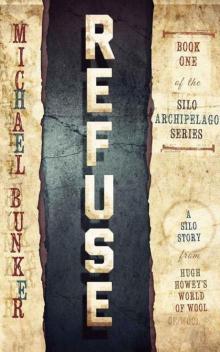 Refuse (The Silo Archipelago Series Book 1)
Refuse (The Silo Archipelago Series Book 1)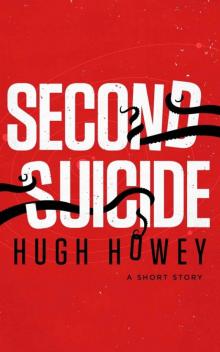 Second Suicide: A Short Story
Second Suicide: A Short Story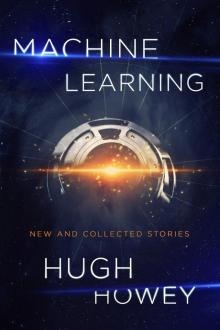 Machine Learning: New and Collected Stories
Machine Learning: New and Collected Stories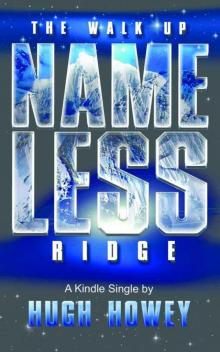 The Walk Up Nameless Ridge
The Walk Up Nameless Ridge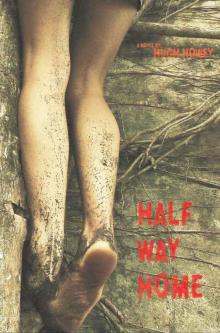 Half Way Home
Half Way Home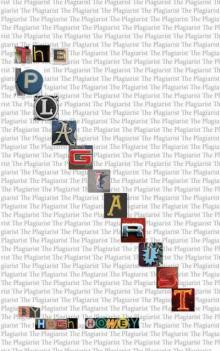 The Plagiarist
The Plagiarist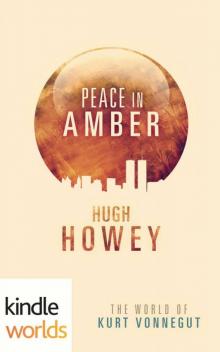 Peace in Amber
Peace in Amber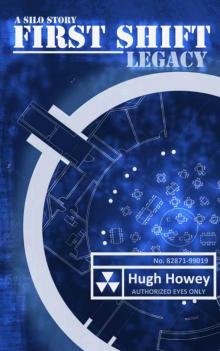 First Shift: Legacy
First Shift: Legacy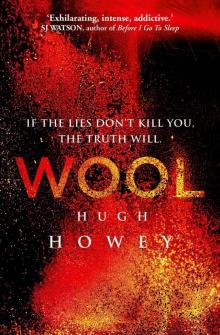 Wool
Wool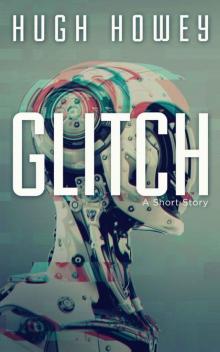 Glitch
Glitch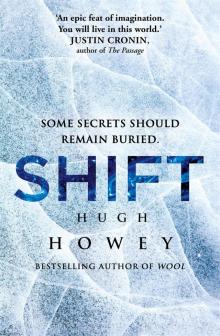 Shift
Shift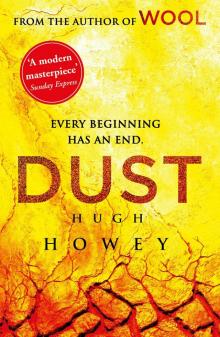 Dust
Dust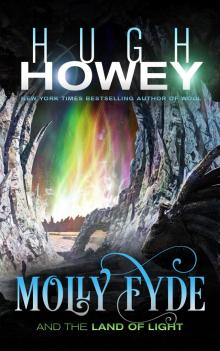 Molly Fyde and the Land of Light
Molly Fyde and the Land of Light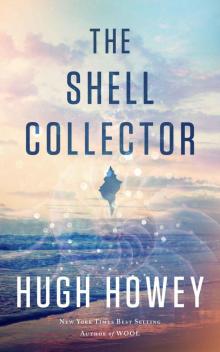 The Shell Collector
The Shell Collector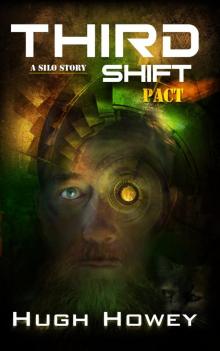 Third Shift: Pact
Third Shift: Pact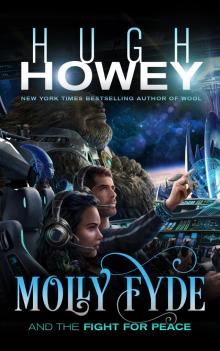 Molly Fyde and the Fight for Peace
Molly Fyde and the Fight for Peace Sand Omnibus
Sand Omnibus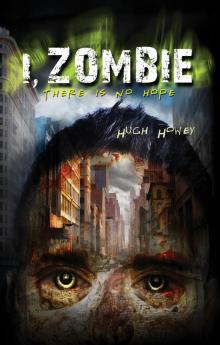 I, Zombie
I, Zombie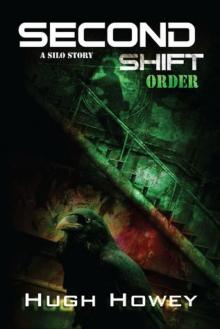 Second Shift: Order
Second Shift: Order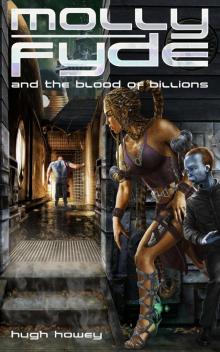 Molly Fyde and the Blood of Billions
Molly Fyde and the Blood of Billions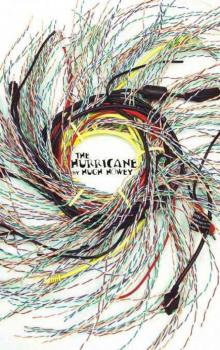 The Hurricane
The Hurricane The Box
The Box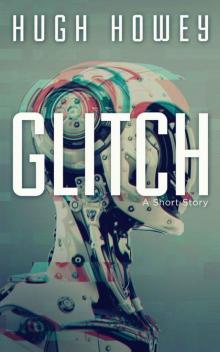 Glitch_A Short Story
Glitch_A Short Story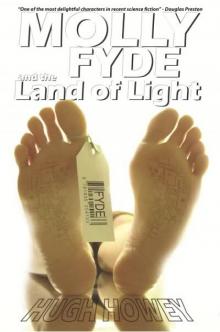 Molly Fyde and the Land of Light tbs-2
Molly Fyde and the Land of Light tbs-2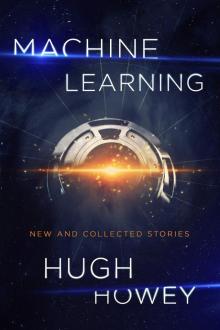 Machine Learning
Machine Learning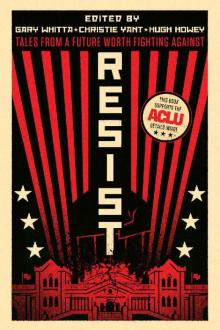 Resist
Resist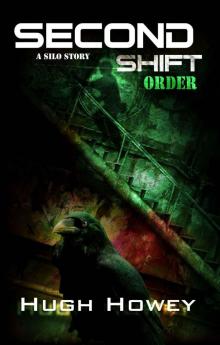 Second Shift - Order (Part 7 of the Silo Series) (Wool)
Second Shift - Order (Part 7 of the Silo Series) (Wool)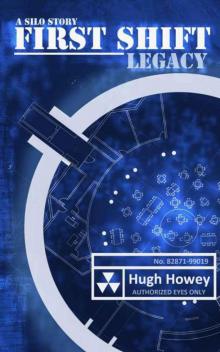 First Shift - Legacy s-1
First Shift - Legacy s-1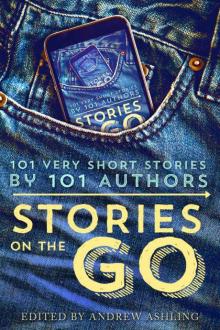 Stories on the Go: 101 Very Short Stories by 101 Authors
Stories on the Go: 101 Very Short Stories by 101 Authors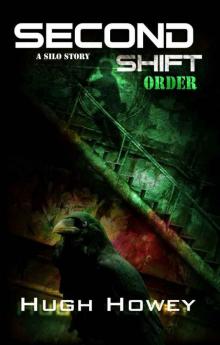 Second Shift - Order s-2
Second Shift - Order s-2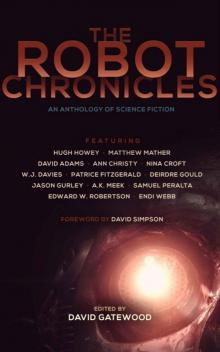 The Robot Chronicles
The Robot Chronicles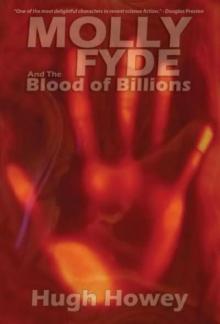 Molly Fyde and the Blood of Billions tbs-3
Molly Fyde and the Blood of Billions tbs-3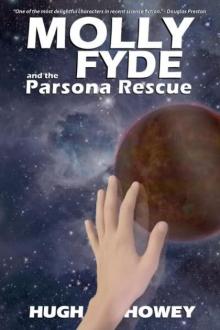 Molly Fyde and the Parsona Rescue tbs-1
Molly Fyde and the Parsona Rescue tbs-1 Molly Fyde and the Fight for Peace tbs-4
Molly Fyde and the Fight for Peace tbs-4 Sand
Sand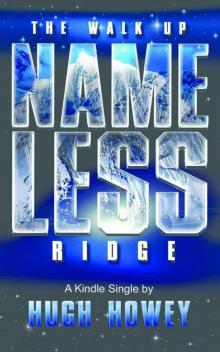 The Walk Up Nameless Ridge (Kindle Single)
The Walk Up Nameless Ridge (Kindle Single) Wool Omnibus Edition (Wool 1 - 5)
Wool Omnibus Edition (Wool 1 - 5)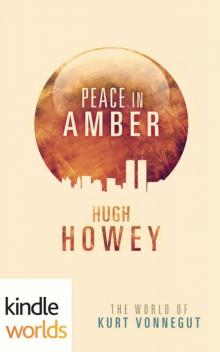 The World of Kurt Vonnegut: Peace in Amber
The World of Kurt Vonnegut: Peace in Amber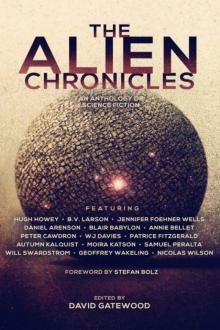 The Alien Chronicles
The Alien Chronicles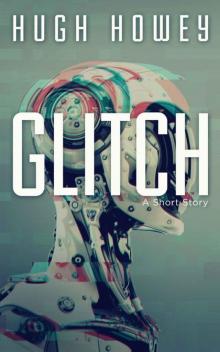 Glitch: A Short Story (Kindle Single)
Glitch: A Short Story (Kindle Single)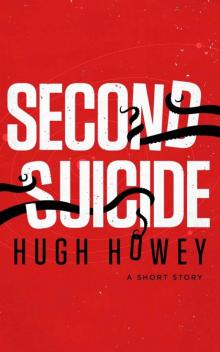 Second Suicide: A Short Story (Kindle Single)
Second Suicide: A Short Story (Kindle Single)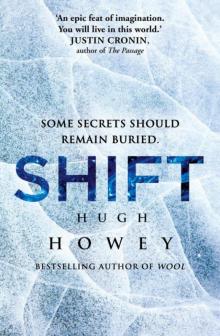 Shift (silo)
Shift (silo)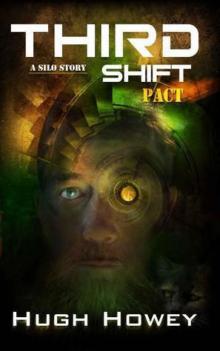 Third Shift - Pact
Third Shift - Pact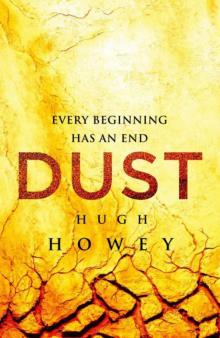 Dust s-9
Dust s-9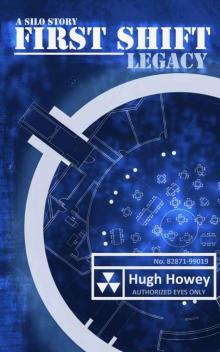 First Shift - Legacy (Part 6 of the Silo Series) (Wool)
First Shift - Legacy (Part 6 of the Silo Series) (Wool)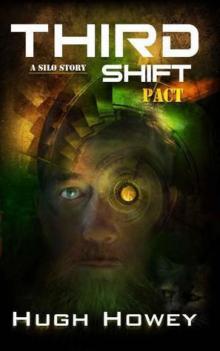 Third Shift - Pact s-3
Third Shift - Pact s-3 Sand: Omnibus Edition
Sand: Omnibus Edition The Box: A Short Story
The Box: A Short Story